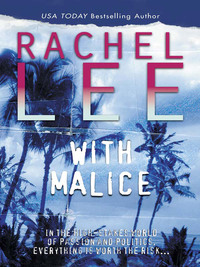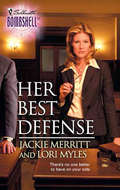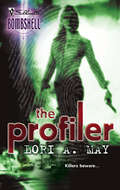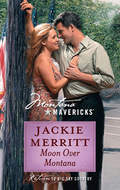Kitap dosya olarak indirilemez ancak uygulamamız üzerinden veya online olarak web sitemizden okunabilir.
Kitabı oku: «With Malice», sayfa 2
“And then?”
“I turned on the foyer lights and headed back toward the office. But as I was passing the living room—” He broke off, and this time he wasn’t pretending anything. His throat tightened, and his face stiffened with the memory. “I…smelled it.”
She nodded again. She knew what he meant, apparently. “Then?”
“I turned on the lights, and…my God…” He couldn’t continue. He honestly couldn’t continue as he recalled those first few minutes when he had stared into an abattoir and tried to make sense of what he was seeing. It had been so alien to his experience that for a while the images wouldn’t even resolve into anything recognizable. And then…
He turned sharply away from the detective, forcing himself to draw steadying breaths, not wanting her or anyone else to see him break down. The ugliness. The horror. There were no words.
“Mr. Connally,” said the woman behind him, “how long was it before you called us?”
2
Grant watched the water drip from his face into the sink. The bitter taste was still strong in his mouth, despite two rinses of mouthwash. The face he saw in the mirror had neither the energy of youth nor the wisdom of age. It was pale, drawn, eyes red-rimmed.
He drew a deep breath. He had to do something.
What would he tell the girls? They’d called Abby last night, before bed, just to say hi, they’d said. He couldn’t remember a night when they’d been away from Abby and hadn’t called her. It was as much a part of their bedtime ritual as hugs and brushing their teeth and him tucking them in. What would he tell them?
He had to get back to Tampa. That much was certain. Call his parents. That was the next step. Tell them what had happened and ask them to take the girls. One thing at a time, he told himself. One thing at a time.
His father’s voice was thick with sleep.
“Dad,” he began, and stopped. Saying that one word broke the last wall of reserve. Sobs tore from his chest.
“Son? What’s wrong?”
“Abby…Abby.”
His father knew. His father had always known. “Oh, son. Oh.”
In the background, Grant heard his mother stirring, asking what was wrong. “Dad, can I bring the girls home?”
The answer was immediate and reassuring. “Come home, son. Bring the girls. Your mother and I will start getting ready now.”
“I loved her,” Grant said, his voice breaking.
“We all did, Grant. Bring the girls. We’ll be ready.”
Jerry Connally shook his head. “I honestly don’t know, Detective. I mean, I know it’s the wrong thing to do, but I looked through the house first, to see if he— I’m guessing he’s a man—was still here. I could tell she was dead, but I checked anyway.”
“Before or after you checked the house?” Karen asked.
“I think before. I’m not sure.” He paused. “It’s funny. I’ve seen in a hundred TV shows where someone finds a dead body and panics and does something stupid. I always thought it was a bad plot device. And I guess I went and did the same damn thing.”
“So you approached the body?”
“Yes. I tried to find a pulse.” He looked down at his hand and shuddered. He met her eyes. “You check the pulse in the neck. That’s where it’s strongest. Easiest to find. I…”
Karen watched his ashen features. It wasn’t hard to see what had happened. Looking at a horrific wound was bad enough. Touching it would turn even the strongest of stomachs. She merely nodded and let him talk.
He seemed to study the floor for a moment. “I guess I checked her and then the house. Those footprints would be mine. Some of them, anyway. Maybe some of his, too. I just don’t know, Detective. I wish I did.”
He was a man transformed, Karen thought. Either he was a hell of an actor or the scene really had horrified him. Neither would prove his guilt or innocence. But the emotions rang true.
“You checked the house and then called?”
She saw the pause flicker over his face. Something he was keeping back. Something he wasn’t sure he wanted to say. “I think I tried to call Senator Lawrence first. I don’t know what time that was, but my cell phone records would show it.”
“You called the senator before you called us?”
He threw up a hand, a gust of breath escaping him. Even to Karen’s alert gaze, there was no question that this was a man in distress.
“I may have. Detective, I’m not real clear on the order of events. I remember hardly being able to comprehend what I saw. I remember checking the house. I remember checking Abby to see if she was still alive. And when I knew she was dead… All I could think of was Grant and his children. They love that woman. They’ve loved her all their lives. And when I knew she was dead…well, it’s possible I thought of telling him first.”
His gaze suddenly fixed on her, intense with emotion. “What difference does it make, Detective? The woman was dead. Abby was dead.”
Karen refused to give him even a moment to collect himself. Instead she pressed him. “It made a difference in how fresh the crime scene was. We might have found the killer in the vicinity.”
He shook his head, his eyes growing hollow. “Like I was even thinking of that. A woman I’d known for years was dead, brutally killed. And people I love were going to be torn up by it. Do you think I was even thinking about what you might need?”
Then he turned and walked away, making it clear he was done with her.
Karen paused, thinking, then decided to let him go. There were questions yet to be asked, but something about Jerry Connally… Some instinct told her he wasn’t the killer. She pushed away the niggle at the back of her brain that insisted Connally was withholding something and went back into the house. Unlike many cops, she had never believed that the most obvious suspect was the likeliest one in a case like this. She wasn’t going to allow herself to get misled. She would find the killer, but she wasn’t going to close off any avenues by making assumptions.
Karen found Millie dusting a heavy glass ashtray. Millie glanced up. “From the floor by her feet. Looks to have prints. Probably the vic’s.” She turned it over. “There’s a bloody smear on the bottom, but that’s from the carpet fibers.”
“So okay,” Karen said. “She’s in her nightgown and a bathrobe. The ashtray doesn’t have bloody fingerprints. Only smears from the carpet. Sounds to me like she’s asleep or falling asleep, hears something, grabs an ashtray from her bedroom, comes down and surprises the killer.”
Millie nodded, her trained eyes sweeping the room. “That would fit, yeah.”
“So what was the killer doing when she came downstairs? Burglary? So far as Connally can tell, nothing’s missing.” Karen nodded toward a lacquered end table where a sectional serving dish held jelly beans and other candies. “That’s silver. There’s other stuff right here. Even if the perp panics after he kills her, why not grab stuff that’s right here in the room?”
“I’m a criminalist, Karen.” Millie shrugged. “Not a profiler. Don’t ask me to explain how criminals think. I just look at what they leave behind.”
“Your people photographed the spatter patterns?”
Millie nodded. “And logged the footprints and all the rest.”
Karen checked her watch. It was nearly five-thirty. “I’m going to go canvas the neighbors. Maybe somebody saw something.” She shook her head. “This case is going to suck.”
Millie smiled sadly. “They all do, Karen. They all do.”
Out on the street, though it was still dark and most people ought to be in their beds sound asleep, a crowd had begun to gather. It wasn’t a big crowd; after all, this was an upscale neighborhood where gawking at misfortune was probably a solecism.
But the ghouls had gathered nonetheless, a handful. All looking as if they had climbed out of their beds and dressed in a rush. Probably the nearest neighbors, and most likely concerned that their own families might be in danger. That was the rational explanation.
But something else stirred inside her, the memory of a Ray Bradbury short story, The Crowd. In the story, the same group of gawkers had appeared at every fatal traffic accident. And in the pre-dawn stillness, Karen could almost see that story taking place. The faces before her, concerned and questioning and peering as if to look through the darkness and the crime scene tape and even the walls of the Lawrence home, could have been the same faces she’d seen around dozens of homicide investigations before. The face of society’s collective guilt and shame and morbid fascination with the depths of evil.
She’d seen too many of these crowds. Crowds around a house where a drunken husband had finally beaten his wife into eternal silence. Crowds around a playground where a drug deal gone sour had ended in gunfire. Crowds around a bar where fists and bottles had flown in the wake of angry words. Always the crowds. Always the same faces. Always the same questions.
Karen shook her head to clear her thoughts. It was late and she was tired. This was no time to let herself get spooked. These weren’t phantasms. They were just people. Curious, worried people.
Sliding her hands into the pockets of her slacks, she ambled in their direction. The houses here were on large lots that were carefully landscaped to provide the illusion that the residents were alone in the universe. These people might or might not have been friends and acquaintances before, but right now they were drawn together by a tragedy.
“Hi,” she said as she reached them. They had gathered by the tape barricade, politely out of the way. “I’m Detective Sweeney.”
“What happened?” one of them asked her, a man who was probably in his midforties, with the well-coiffed, well-built look that came from a combination of money and the time to spend with a personal trainer.
“Who are you?” she asked him.
“Wes Marlin. I live across the street. And I want to know what happened.”
“I’m sure you do.” Karen gave him a polite smile and pulled out her pad and pen, scrawling his name. “Phone number?”
“Why? I didn’t see or hear anything. I’m just worried. I have a wife and kids, you know.”
“Yes, of course. I can get your phone number, you know.”
So he gave it to her, along with his address. Then she turned to the others. “Did anyone hear or see anything at all?”
Most of the heads shook negatively, almost in unison, as if the crowd had become one entity. Muted calls of “What happened?” rippled out, indistinguishable one from the next.
Then another man spoke. “I heard a car,” he said.
Immediately Karen’s gaze snapped to him. “Your name?”
“Art Wallace. I live next door.” He pointed over his shoulder to the right. “The Lawrences are like family to me. We’ve been friends for ten years, at least. Our kids play together. So could you please just tell me if Abby is okay?”
“Abby?”
“The nanny. Oh, hell, she’s not a nanny anymore, she’s part of the family. Grant took the girls to D.C. with him, so she’s the only one home. Is she all right?”
He was a good-looking man in his midforties, a little thin in the hair, and wearing an expensive pair of glasses, but he had the kindest face among all the plastic faces around him. “Do you know Abby well?”
“Of course! Like I said, she’s part of the family.”
“When did you hear a car?”
“Hell, I’m not really sure. I was asleep and woke up a bit. It had one of those noisy mufflers that some people like so much. I remember thinking that if the driver lived around here, I was going to have some words with him. Then I fell back to sleep until I heard all the commotion out here. What about Abby?”
“I’m sorry, Mr. Wallace.”
He looked at her; then his face seemed to crumble. “Oh, God,” he said, his vice tight. He turned away and walked off into the darkness.
Karen let him go for now. She looked at the others. “Did any of you hear a noisy muffler?”
She was answered by more shakes of the head. She could see the crowd wasn’t really attending her anymore, though. They were—it was—thinking about the fact that a neighbor had been murdered. Piece by piece, person by person, the crowd broke apart and melted into the dawn.
Grant eased Belle, his six-year-old daughter, into his father’s arms. Behind him stumbled his nine-year-old, Catherine Suzanne, carrying Belle’s teddy bear and her own secret vice, a fuzzy blanket from her babyhood. Both children were utterly exhausted, having been rousted out of their beds at three in the morning to catch a red-eye flight home.
Belle had finally fallen asleep fifteen minutes before landing, running out of the nervous energy of excitement at the strange situation. Cathy, older and a little wiser, seemed to sense something was wrong, but so far she hadn’t asked. And she hadn’t slept. But that was Cathy. She kept things inside, not exactly brooding, but more reflecting and waiting.
Bryce, Grant’s father, reached out with an arm and squeezed Grant’s shoulders before accepting the small burden of the sleeping Belle. “What have you said?” he asked Grant, his eyes filling in the unspoken, what have you told the girls?
“Nothing. Later. The girls need sleep, Dad.”
Bryce nodded, hugging Belle tightly to his chest. He smiled at Cathy. “How’s my pumpkin doing?”
“Fine, Grandpa.” The answer, tired as it sounded, carried Cathy’s usual reserve.
“Well, let’s get you home and snuggled into your comfy beds,” Bryce said heartily. “And later, Grandma’s planning pancakes.”
Melinda Lawrence drew her son aside as Bryce tucked the girls into the car. Her eyes were red-rimmed, too. Abby had been as much a fixture in their lives as she had in his, and they felt her loss every bit as deeply. He felt his face sag.
“Mom.”
She drew him into her arms. It was a familiar embrace, despite the media stories of his having grown up at the shadowy fringes of his parents’ glittery world. Yes, Abby had raised him. Yes, his parents had worked long, grueling hours, often on location, producing films. They’d wanted him to have the stability of attending the same school, living in the same house, replacing Lego castles with posters of sports figures and, eventually, his own high school trophies. Of having a home. So Abby had always been there.
But they’d been there, too, in their own ways, and as often as they could. As Grant had entered his teens, his parents had cut back to a movie every other year, telling the media they wanted more time to devote to each project, when in fact they simply wanted more time with their son. His mother’s embrace had never been uncomfortable, had never been unfamiliar. And now he found some tiny measure of solace in her arms.
“Abby’s learning angel songs,” his mother whispered in his ear.
“And teaching them how to make corn bread.”
“Yes, son. And teaching them how to make corn bread.”
She held him at arm’s length and studied his face. “You need sleep, too, Grant.”
He nodded sadly. “I know, Mom. But I also need to know what’s going on. Jerry’s holding down the fort, but I need to…I need to see.”
Her grip on his arm tightened a bit. “Jerry Connally can see for us. He’s a fine man. You come home and get some breakfast, at least.”
He started to speak, but she cut him off. “I don’t want to hear it. None of us is hungry. But you need food, son. And by God, you’re going to eat.”
The glint in her eye told him it was okay to smile, that he didn’t have to fall and keep falling forever. He struggled to make the corners of his mouth lift a bit.
“No, Mother. I’m going to the house first. I’m going to speak to the police first. Then I’ll come over and talk to the girls. In the meantime, make sure they don’t see or hear the news.”
She nodded, giving him the space to make his own decisions, which she still sometimes found hard to do.
He watched them drive away, then went back into the terminal, heading for the taxi stand.
Action was what he needed now, more than food, more than sleep. Even if action would save no one and nothing.
Karen Sweeney recognized him the minute he climbed out of the cab in front of the house. She almost sighed. She’d been about to leave the scene, to go home and grab a couple of hours of sleep. Now she had to do another interview and probably answer questions herself, questions for which she had no answers yet.
Grant Lawrence was sometimes referred to by the media as the next John Kennedy, and Lawrence really did have that magic. Karen, a lifelong Republican, somehow always found herself voting for Grant Lawrence, Democrat. He made sense. But more than making sense, he made the impossible seem possible, made the heart soar with hope that the world could be a better place. Like Kennedy, he never said it would be easy. He admitted to all the obstacles, then made you feel as if surmounting obstacles was the entire point.
She liked his attitude. And it didn’t hurt that he could give a younger Robert Redford a run for his money in the looks department. Dark hair dashed with gray, perfectly chiseled features, a determined jaw, and a stride that said, you can knock me around but you can’t knock me down.
And that bundle of talent, looks and potentially huge problems for her was walking her way right now, being passed through the cordon as if he were king. Nobody even asked him to wait.
This was Lawrence turf, even for the cops.
It struck her that all she thought she knew about him was public image, and that all her admiration for him wasn’t going to make her job one iota easier. She suddenly wished someone else had been called on this case.
One of the cops pointed her out to him. Otherwise she was sure he never would have noticed an Irish wren with colorless eyes and her dark hair drawn impatiently back. Karen Sweeney had always been one to blend and never one to stand out.
But he was looking at her, straight at her, with electric blue eyes, bluer than she ever would have guessed from seeing him on the news and in the paper. He was also thinner than she had thought, and while tall, not quite as tall as he looked on the tube. He looked…not quite as imposing, yet somehow more powerful. Weird. And she needed to focus her sleepy brain before this politician ran roughshod over her and got information she wasn’t supposed to give out. Before she forgot that she was the one who was supposed to be in control of the scene.
“Senator,” she said simply.
“Detective,” he answered. Then said nothing, as if waiting for her to fill in the missing pieces.
This close, she could see the fatigue and sorrow weighing down his features. The raw eyelids and cheekbones. In a moment he was no longer Senator Grant Lawrence, leading political light.
He was simply a man broken by violence.
“Jerry Connally told me he called you. I’m very sorry.”
“Thank you,” he said quietly. “Can I see her?”
She shook her head. “They’ve taken her away already. I hate to ask this, but I do need to go through the house with you. It looks like she surprised a burglar. Mr. Connally didn’t notice anything missing, but…it’s your house.”
He simply nodded, and she continued.
“We can do it later. But it would help the investigation to know as soon as possible. If there was something stolen, finding it might help us find out who did this. A homicide trail goes cold fast.”
“I understand, Detective.” He glanced around. “Is Jerry here?”
He wanted the comfort of a familiar face, she could tell. And she couldn’t offer it. “I’m sorry. He went downtown to fill out a statement. Procedure.”
“Yes. Procedure.” He ran a hand through his hair, momentarily appearing utterly lost. Then he squared his shoulders. “Okay, Detective. Show me my home.”
3
Grant Lawrence paused in the doorway and realized his house had become an alien land. It wasn’t just the strangers who were everywhere, the police in their uniforms, the technicians with their cases and clipboards. No, it wasn’t that his house was full of strangers. For Grant Lawrence, a stranger was merely an opportunity to make a friend or an ally, and he met with many new people right here in this house.
But the house was changed forever. It was no longer his home. It had become the place where Abby had died. It felt different. It smelled different. He stepped into it as if stepping in a mausoleum.
He had been so shaken by the news of Abby’s and Stacy’s deaths that he hadn’t given much thought to how they had happened. He wasn’t spared the knowledge for long. He turned toward the living room, that large, over-decorated space where he often entertained, the creation of his late wife’s opulent taste, and he saw.
The sight knocked the wind from him, and he spun away. It wasn’t that he’d never seen bloody horror before. The memory of jagged white bone protruding from his right shin, of bright, hot blood pulsing between his fingers as he grabbed the wound, was still vivid. He knew exactly what he was seeing. But this time it had been Abby, his lifelong second mother. And Stacy, a woman he had once thought he might be in love with.
Oh, God! He leaned against a wall, hot and cold by turns, pressing his forehead against cool plaster, closing his eyes, trying to banish the image of what he’d just seen.
A hand touched his arm, a small hand with surprising strength. It gripped him. “Senator?” said the smoky voice of Detective Sweeney. “Do you need to sit?”
“I’ll be all right.” He had to be all right. As had happened so many times in his life, he had no choice but to be all right.
He drew a steadying breath, regaining his self-command. A line from one of his father’s favorite poems floated unbidden through his consciousness. If you can meet with triumph and disaster/And treat those two imposters just the same. Rudyard Kipling’s idealized “Man” would have known how to handle this.
“I’m sorry,” she said. “I should have warned you.”
He raised his head, pushed himself away from the wall and looked at her. “Why? That would have deprived you of the opportunity to see my initial reaction.”
He thought she flushed faintly, but if so, it was nearly invisible. “Senator, you were in Washington. You’re not a suspect.”
He knew better. Jerry had found Abby and Stacy, and had called him before he called the police. This detective didn’t look like the type who would overlook or ignore the obvious possibility of complicity.
He had to be careful not to mention Stacy, at least until he knew what the hell Jerry had done. He wasn’t going to betray his friend over something that was relatively unimportant. If it was unimportant.
He shook himself. He would have to deal with Jerry later. That would be then. This was now. “How did it happen?”
“Her throat was cut.”
“My God!” He closed his eyes for a moment, absorbing the enormity, trying not to think of Abby’s last few moments. Abby. Far more important to him than Stacy in so many ways. But both were dead. Both.
“Look,” said Detective Sweeney, “you don’t have to go into that room. It’s obvious the valuables in there weren’t taken. But I need to know about the rest of the house.”
He nodded, clamping down on the horror he felt. “Fine, let’s go.” He would have time later for feelings. He’d learned that long ago. There were a lot of things better put on hold until he had privacy to think about them and feel them. Otherwise, it was as his mother had once said: if there’s one other person who can see you, you’re on camera.
Why hadn’t Jerry warned him about what he would see?
The rest of the first floor was undisturbed. The farther he got from his living room, the more he could almost lull himself into thinking everything was normal. Until he reached his office. A file drawer, almost but not quite closed, a discrepancy that most people might not have even noticed, alerted him.
“Detective, those cabinets were locked.”
“Mr. Connally said he came for some papers.”
He looked at her, noticing again that her eyes were almost colorless, but now they had taken on an almost preternatural focus. As if she had picked up on something. He wondered if he imagined the way her delicate nostrils seemed to flare, testing the breeze.
He spoke. “I called him last night to pick up some things for me and express them to Washington. But he wouldn’t have left the files open.”
She nodded and moved forward, coming within inches of the cabinets. “It looks like this lock was picked.” She faced him. “What’s in here?”
“Background information on a conservation bill I authored. Scientific reports, mostly, the stuff I brought down from D.C. to study while I’m here. Some from independent research firms, some from the EPA.”
She looked at the lock again, then moved down the row of file cabinets. “They’ve all been jimmied. By someone in a hurry. Who would want these papers? Sugar growers?”
He gave her marks for environmental awareness. “They’re opposed to the bill, yes. Among many others in agriculture. But I find it hard to believe they would kill to get a look at these documents.”
“Maybe, maybe not.” She looked his way again, her gray eyes opaque. “Anyone else who might be on the list?”
“I don’t know.” He sighed and rubbed his eyes, and tried to focus on what she needed, reminding himself it was all he could do to help Abby and Stacy now. “I have all kinds of political enemies, Detective. Any man in my position does. But it’s hard to imagine them committing murder.”
“I agree. But the murder may have been purely incidental.”
Something in him flared, and his voice grew deadly quiet. “There’s nothing incidental about what happened here.”
Her expression never wavered. “Poor choice of words, Senator. I merely meant that murder was probably not the intention, but rather the result of panic on the part of the intruder. Except…”
Her voice trailed off, and she began to walk around the room, studying the bookshelves, the neat desktop, the view out the back window over well-tended gardens, now a riot of fresh April color. What a sorry ending to his daughters’ spring vacation.
“Except what?” he demanded when she said nothing further.
“Except,” she said finally, “I wonder how it was that Ms. Reese came upon him in the living room.”
His head snapped up a bit as he realized what she was saying. “I don’t keep anything of importance out there. Nothing of political importance, anyway.”
“I would think not. Well, it might have just happened that way. Maybe he heard Abby coming and darted in there to hide.”
Or maybe not. Grant felt his neck chill with a premonition of ugliness yet to be found. Stacy had been here, too. But he couldn’t tell her that. What if Stacy had had something to do with the break-in? What if she’d brought someone here to give them access to his papers, then had been killed to keep her silent? And what if that was what Abby had stumbled into?
He felt, suddenly, as if he were standing on the narrow tip of a very windy precipice, barely maintaining balance. He understood from Jerry’s cryptic remark on the phone that Jerry had removed Stacy from the house. He could have meant nothing else. And so far the police had only mentioned Abby, so they knew nothing about Stacy. God, he didn’t want to think about the legal ramifications of that for Jerry.
But it also put him in a precarious position. He had information that might be relevant to the investigation, information he couldn’t share without getting his closest aide into trouble, without exposing his children to the kind of scandal he’d been protecting them from for years. And protecting his daughters came first, came before everything else. Including his presidential aspirations.
“I’m going to have the file cabinets dusted for prints, Senator. Afterwards, I’d like you to tell me what, if anything, is missing from them.”
“Very well.”
“What’s in the desk?”
“Just stationery, pens, pencils, pads, things like that. All my papers are in the file cabinets.”
She nodded and gave him what he supposed was meant to be an encouraging smile. “Could your computer have been tampered with?”
He shook his head. “I wouldn’t think so. It’s password protected. But even if it were…I don’t keep much on it. Drafts of speeches I’m thinking of making, little things like that. When I’m in town, Detective, I’m usually busy with constituents, and any private time I have is largely for thinking, not doing. That computer is full of a lot of quick notes and thoughts, but little else. If someone were going to commit electronic theft for political gain, he’d be better off hacking into the network server at my office, in Washington. That’s where we do the real grunt work.”
She looked at the monitor and keyboard sitting on his desk. “Then I doubt anyone got into it. I’ll have someone check to make sure it hasn’t been physically tampered with. But given that our perp was clearly in a hurry, it’s not likely.”
She turned to him again. “Let’s take a look upstairs now.”
He followed her up the sweeping staircase, one of the features that Georgina, his late wife, had loved about this house. To him it had always seemed pretentious, something better suited to an antebellum mansion. But Georgina had had her eye even more firmly fixed on the presidency than he had. Sometimes he thought this house had been his wife’s rehearsal for the White House.
He dreaded what he might find up there. Signs of Stacy’s presence? What had she been doing here? They’d broken off months ago, in mutual realization of the cost. Stacy had been a wonderful woman, but both he and she had seen the handwriting on the wall.
He’d met her on the rebound from his wife’s death—strangely enough, not at the club where she worked, but in his local office, when she came to help stuff envelopes during his last campaign. But rebounds can only bounce for so long. Their parting had been amicable. Understanding. And he’d long since quietly found a way to make sure Stacy could open the dance studio she’d always dreamt of, rather than baring her body for strange men in a dark, noisy, impersonal bar.
Ücretsiz ön izlemeyi tamamladınız.








